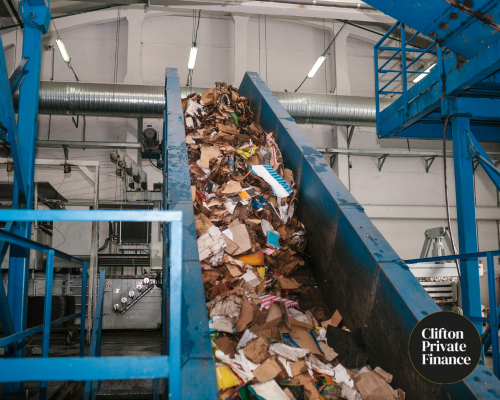What Is Ship & Vessel Financing?
Owning and operating ships and vessels in the UK maritime industry requires significant capital investments and ongoing costs. Whether you need a small tanker vessel, large containership or specialised shipping craft, financing is often essential.
Ship financing refers to obtaining funds to cover the major expenses associated with ships and vessels, which typically include:
- Purchase cost or newbuild construction (from £50 million+ for smaller ships)
- Refits, repairs and scheduled maintenance
- Operating costs like crew, fuel, insurance, port fees etc. (potentially millions per year)
Rather than paying the full capital cost upfront, ship owners can access affordable financing solutions that spread the costs over time. Popular options include debt financing, equity investment or increasingly - ship leasing.
Types Of Ship & Vessel Finance
Depending on your requirements and investment strategy, there are various financing products and structures suitable for UK ship owners:
- Ship Mortgage Loans Secured loans using the ship itself as collateral. Gives the lender a statutory mortgage interest over the ship under the Merchant Shipping Act 1988. Repaid over 5-15 year terms.
- Equity Financing Raising funds by selling ownership stakes in the ship to investors. More partners dilutes individual risk but also shared equity in the asset.
- Operating Leases Pay monthly rental fees to use the ship over a fixed period without ownership. Low upfront costs with bundled maintenance/insurance fees. Return at lease end.
- Finance Leases Similar to an operating lease but with an option to purchase the vessel outright at the residual value when the lease term ends.
Ships That We Can Source Finance For
- Bulk Carrier ship Finance
- Container Ship Finance
- Roll-on Roll-off Ship Finance
- Tanker Ship Finance
- Cargo Ship Finance
The Ship Financing Process
Obtaining funding for UK ship acquisitions typically involves the following steps:
-
Discuss Requirements - Consult our shipping finance experts to determine your vessel needs, ownership strategy and optimal financing approach.
-
Value Assessments - We'll arrange independent valuation surveys and assessments of the vessel's condition, age and projected operating costs.
-
Risk Assessments - Background checks on your company's creditworthiness, operating history and regulatory compliance are conducted.
-
Finance Structuring - We'll model various financing scenarios and products to secure you the most competitive terms and rates over your preferred duration.
-
Documentation & Security - Completing all paperwork, including security registrations and statutory mortgage arrangements to ratify the lender's interests.
-
Vessel Delivery - Once approved, final contracts are signed off and the ship financing is disbursed to take ownership of the vessel.
-
Payments & Monitoring - Simply maintain scheduled repayments as agreed. Finance partners monitor your vessel's management and operations.
Advantages Of Ship Finance
- Conserve Capital - No need to commit all your capital upfront for asset purchases. Can be invested elsewhere.
- Budgeting Benefits - Spread costs over fixed, predictable payment schedules rather than volatile lump sums.
- Tax Efficiency - Loan interest and lease payments are tax-deductible business expenses.
- Risk Management - Leasing structures allow ownership transfer or exchange at end of useful economic life.
- Environmental Standards - Access preferential 'green' lending under the Poseidon Principles for eco-efficient newbuild orders.
- Asset Lifecycle Management - Avoid issues of obsolescence, residual values or selling aged vessels yourself.
Additional Ongoing Costs Of Ship Ownership
Obtaining financing for the initial acquisition is just one part of the expense involved with ship and vessel ownership in the UK. There are significant ongoing operating costs that must be considered and budgeted for over the lifetime of the asset. It's crucial to carefully evaluate and plan for these expenses when structuring your ship finance package. You should also consult experienced ship brokers and maritime consultants who can advise on realistic cost projections based on the vessel type, size and intended operations.
At Clifton Private Finance, our ship finance experts can guide you through forecasting these costs and structuring an affordable financing solution to cover both the asset purchase and operating expenditure. With over 20 years of industry experience, we'll provide expert insights tailored to your unique situation.
Some of the major ongoing costs associated with UK ship and vessel ownership include:
- Crew Salaries & Provisions For oceangoing vessels, maintaining a full crew is essential and represents a major annual expense. This includes salaries, benefits, victualling and other crew provisions which can range from £500,000 to over £5 million per year depending on crew size.
- Fuel Costs
Bunker fuel expenditure for powering ships is substantial, especially with larger vessels. Costs can fluctuate significantly based on global fuel prices but could reach £5 million+ annually for some ship types. - Insurance Premiums Comprehensive insurance coverage is mandatory, including Hull & Machinery, Protection & Indemnity and potential specialist policies. Premiums depend on vessel value but can reach 1-5% of the insured value per year.
- Classification & Statutory Fees
To maintain regulatory compliance and retain certification, there are annual fees for classification societies like Lloyd's Register as well as various statutory charges. - Drydocking & Special Surveys Vessels must periodically go into drydock for deep inspection and potential repairs. Costs for drydocking range from £500,000 for smaller ships to over £5 million for ultra-large container vessels.
- Lubricating Oils & Stores
Substantial quantities of lubricants, chemicals, stores and other consumables are required, costing £250,000 per year or more depending on vessel type and operations. - Port Fees & Taxes For each port of call, there are fees for pilotage, towage, berth hire and various taxes/duties that can add up considerably over a year of trading.
The financing amount you require depends not only on the ship purchase cost but ensuring you have sufficient capital to cover both the asset and these ongoing operating expenses long-term. Our ship finance experts can guide you through an accurate assessment.
Speak To UK Ship Finance Specialists
Whether you need small coastal vessels or large oceangoing ships, the expert ship and maritime finance team at Clifton Private Finance can source competitively priced funding solutions tailored to your precise needs.
With decades of experience and strong lender relationships across the sector, we'll secure you the optimal financing package while handling all negotiations and approval processes.
At Clifton Private Finance, we have a team of specialist finance brokers who can help you finance a ship or vessel in the UK. We can work with manufacturers and dealers to arrange your ship or vessel financing plan and finalise your purchase. We can also help you finance new, used, or auction-bought ships, and offer the most competitive service for you.
To find out more about our finance broker service, don’t hesitate to contact us today.
We offer a free and no-obligation telephone consultation at a time that suits you.












